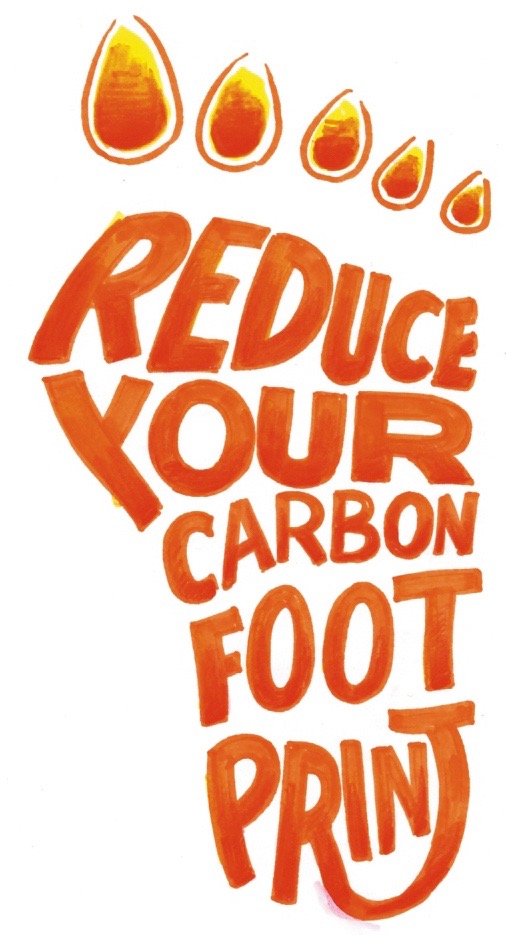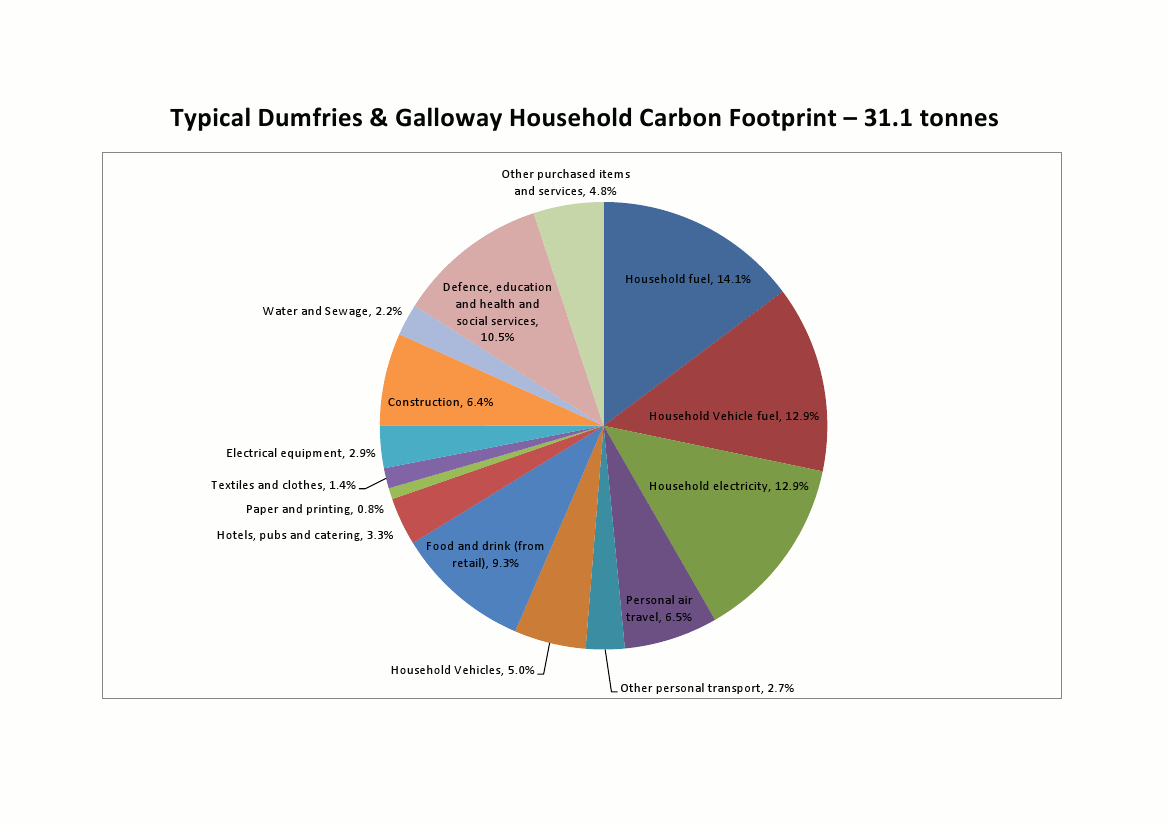Each household in Dumfries & Galloway uses energy in a variety of different ways. The production and use of this energy produces dangerous greenhouse gases such as carbon dioxide which are causing global warming.
If left unchecked, continued emissions of greenhouse gases at current levels will destabilise the earth's climate and make the world largely hostile to life. This could happen within your children's lifetime.
This makes it vitally imporant for us to consider how we use energy and to adopt a low carbon lifestyle - to actively reduce those emissions of greenouse gases we are personally responsible for.
We should consider aspects of our daily living such as home energy, transport, food, shopping and government spending on our behalf, in order to monitor how much greenhouse gas our household produces each year.
Do you use the car when you could use a bus? How many long-haul flights do you make in a year? How far has produce travelled to arrive on your table? What measures can we take at home to reduce our heating costs? We need to ask ourselves these and other questions to increase our awareness and understanding of our carbon footprint.
It is up to each of us to act. Adopting a low carbon lifestyle means getting ahead of the game. The future is low carbon, and the cost of high carbon lifestyles to your wallet, conscience and to the environment is only going to escalate.
Click here for information about wireless energy monitors. We have also included wild food recipes - click here for more information.
Above: A typical Dumfries & Galloway household carbon footprint. How does yours compare? (data provided by Small World Consulting)
Towards a zero waste society
What can you do today? Communities all across Scotland are becoming involved in doing their bit to protect the environment for future generations by reducing waste. As individuals we can each do small things that make a big difference.
On average, households in Scotland waste approximately £8.30 worth of food every single week that could have been avoided. That’s an average cost of £430 a year per household and over £1 Billion per year in Scotland. Added to that is the environmental cost of producing, packaging and transporting 566,000 tonnes of food a year that gets needlessly thrown away.
Household Food Waste: There are simple measures that we can take to reduce household food waste:
Know your dates: ‘Use by’ dates tell you when food can be safely eaten; whereas ‘best before’ dates refer to quality and can be eaten after this date.
Get Planning: Before you go shopping, remember to check your cupboards and make a meal plan. Writing a shopping list will help you only buy what you need.
Freeze: Freezing fresh foods and home cooked meals is a great way to seal in freshness and keep tasty meals at hand, saving you time and money.
Love your Leftovers: Leftover ingredients can be used to create further recipes – leftover recipes can be found at www.lovefoodhatewaste.com.
Home composting and grasscycling can help to reduce garden and household waste in Dumfries and Galloway.
Grasscycling: Just leave your grass cuttings on the lawn, this will feed nutrients back into your lawn while saving you time.
Home composting: 45% of the average household bin can be composted. By composting we are making a useful resource for our gardens and preventing waste having to be processed and transported across our region. Here are a few simple tips for composting.
Get the mix right: Home composting needs a 50/50 mix of green materials, such as vegetable peelings and garden waste and brown materials such as paper and cardboard.
Get the position right: Your compost will need a sunny position in the garden so that it will heat up to a temperature that will allow composting to happen and there is no point in putting it so far from your back door that you won’t ever visit it.
If you are interested in finding out more about reducing household waste, or becoming a volunteer, visit our Facebook page.

